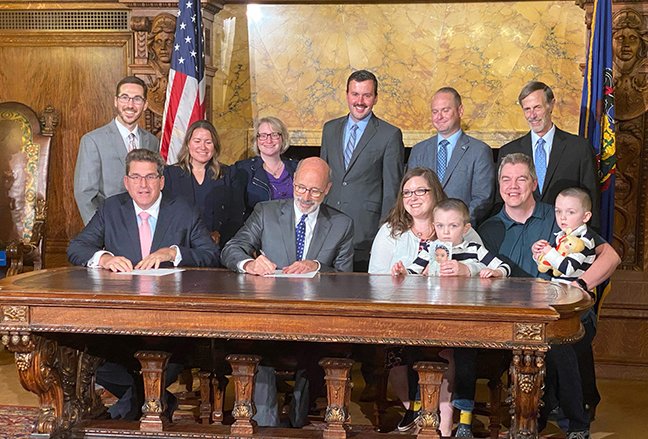This special year-long podcast project reveals special people—unsung heroes—in our midst. For a whole year, podcast host and producer Karen Hendricks asked TheBurg Podcast guests the same question: If you could identify an unsung hero in the Harrisburg area, who would it be and why?
Except, instead of airing all their answers, we’ve been saving and compiling them, so that we could release them all collectively in this special Unsung Heroes of Harrisburg Podcast on Valentine’s Day.
Think of this show, released on Valentine’s Day, as an audio Valentine that shares some community love for Harrisburg!
Hosting: Karen is joined by Lawrance Binda, publisher and editor of TheBurg.
Many thanks to two podcast sponsors:
Hero in the Fight, whose mission is to break the stigma often associated with addiction, because living in active recovery is a heroic act, every day. For help, support and facts, visit herointhefight.org/.
Goodwill Keystone Area: And you probably know that the Goodwill store is a great community thrift store. But there’s a story behind the store that puts “goodwill” into action, advancing sustainability in our communities. Check out their story at yourgoodwill.org.
Guests include (but tune in to hear who they reveal as unsung heroes):
Kristin Messner-Baker of The Vegetable Hunter
Chad Eric Smith of Mural Arts Philadelphia
Speaker and historian John Maietta
Otis Harrison of OD’s Fish House
Soccer coach Toan Ngo of Eagle-FC’s USL W team
Kim Rice of the Harrisburg Area Riverboat Society
Local journalist-turned-teacher Dennis Reardon
Elle Lamboy formerly of the Gettysburg Foundation
Peter Leonard of Little Amps Coffee
Lt. Adam Reed of the Pennsylvania State Police
Josiah Peay of the Central PA Kings basketball team
Amy Kaunas of the Humane Society of the Harrisburg Area
Weston Kensinger of Penn State Harrisburg’s Douglas W. Pollock Center for Addiction Outreach and Research
Julie Fitzpatrick of the Pennsylvania Downtown Center
Ellen Min of the Harrisburg Asian American and Pacific Islander Community (HAAPI)
Carl Shuman, retiree-turned-children’s book author
David Morrison of Historic Harrisburg Association
Andrea Grove of Elementary Coffee
Greg Czarnecki of Pennsylvania’s Department of Conservation and Natural Resources
Jessica Rudy of Gettysburg’s Majestic Theater
Sue Kunisky of Visit Hershey and Harrisburg
Lesa Brackbill, newborn screening advocate
Karen Good, clinical nurse specialist with UPMC Harrisburg
Thomas Sweet, retired pastor of Market Square Presbyterian Church
Nathan Reigner, Pennsylvania’s director of outdoor recreation
Also see our February 2023 magazine feature, “Unsung Heroes of Harrisburg,” expanding several of our unsung heroes’ stories.
For more information on award-winning Harrisburg-area journalist Karen Hendricks, visit her website and subscribe to her free monthly writer’s newsletter at WriterKarenHendricks.com.
Every month, TheBurg Podcast expands stories from the pages of TheBurg magazine because “there’s always more to the story.” TheBurg is a monthly community magazine based in Harrisburg, Pennsylvania; Lawrance Binda, publisher/editor. TheBurg Podcast has received three prestigious podcast journalism awards over the past two years, including First place, Excellence in Journalism, Society of Professional Journalists, Keystone Chapter, 2021.
Interested in sharing your advertising message with TheBurg Podcast’s dedicated audience? Research shows that podcast sponsorships are one of the most effective forms of advertising! Contact Lauren (lmills@theburgnews.com) or contact Karen directly at WriterKarenHendricks@gmail.com.
Subscribe to TheBurg Podcast on:
Apple | Spotify | Audible | Amazon Music | Google Podcasts | iHeart Radio
If you like what we do, please support our work. Become a Friend of TheBurg!










